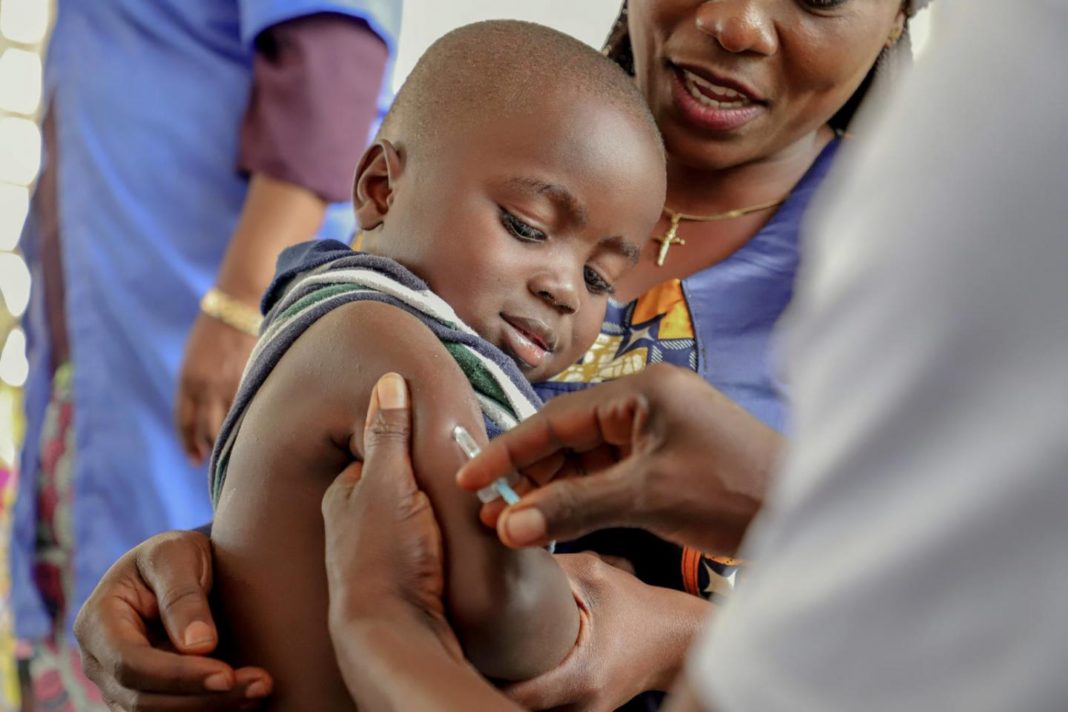An estimated 33 million children will need to be vaccinated in Africa between 2023 and 2025 to put the continent back on track to achieve the 2030 global immunization goals that include reducing morbidity and mortality from vaccine-preventable diseases, an analysis by World Health Organization (WHO) finds.
The unprecedented impact of the COVID-19 pandemic on routine immunization services has driven up the number of zero-dose and under-immunized children, rising by 16% between 2019 and 2021 and pushing the cumulative total (2019–2021) to around 33 million, which represents nearly half the global figure, according to estimates by WHO and UNICEF.
“The pandemic has seriously set back the region’s vaccination efforts and left millions of children vulnerable to vaccine-preventable diseases that can cause serious illness and even death,” said Dr Matshidiso Moeti, WHO Regional Director for Africa. “As countries strive to emerge from the long shadow of COVID-19, we cannot afford to lose further ground. Every effort must be made to ensure every child has access to essential vaccines.”
Without renewed political will and intensified efforts by governments, it is estimated that vaccination coverage in Africa will not return to pre-pandemic levels until 2027.
This year, African Vaccination Week and World Immunization Week, from 24–30 April, is being marked under the theme “The Big Catch-Up”. This is a global push by WHO and partners to intensify efforts to reach children who missed vaccinations, as well as to restore and strengthen routine immunization programmes.
The “Big Catch-Up” campaign builds on efforts to advance countries towards the goals of Immunization Agenda 2030, a strategy endorsed during the WHO World Health Assembly in 2020. It seeks to reduce mortality and morbidity from vaccine-preventable diseases, ensure equitable access to vaccines and strengthen immunization within primary health care.
To urgently scale up coverage and protect children, WHO and partners are supporting 10 priority African countries which are among the top 20 countries globally with the highest numbers of zero-dose children to carry out catch-up routine vaccination campaigns.
“African governments and healthcare workers made heroic efforts during an unprecedented public health emergency, vaccinating more people than ever before in history. But the ripples of this emergency response effort are still being felt. At the Vaccine Alliance we are intensifying our efforts to support countries to make up lost ground,” said Aurelia Nguyen, Chief Programme and Strategy Officer for Gavi, the Vaccine Alliance. “Our Alliance is committed to working with countries and communities alike to support efforts to catch up and restore immunization, focusing on responding to the unique needs of each child – and particularly those in hard-to-reach areas and fragile and conflict settings.”
At a high-level event during the African Union Summit in February 2023, African heads of state endorsed a declaration aimed at revamping and scaling up routine immunization across the continent. The declaration also called for urgent measures to address persistent bottlenecks in vaccine and health care delivery systems.
In a bid to recover from the pandemic’s disruptive wake, countries have made efforts to restore health services. Decreased vaccination levels have led to a surge in outbreaks of vaccine preventable diseases such as measles, meningitis, diphtheria, polio and yellow fever.
Despite the disruptions, at least one third of African countries have sustained the target coverage of 90% or higher for the third dose of the diphtheria-tetanus-pertussis vaccine, and the third dose of the polio vaccine, over the past three years. However, only three countries have sustained this coverage for the second dose of the measles and yellow fever vaccines during the same period.
The region has also continued to step up the polio response. More than 30 million children were vaccinated against polio in Malawi, Mozambique, Tanzania, Zambia and Zimbabwe in 2022, following wild poliovirus type 1 cases being reported in Malawi and Mozambique.
“The ambition to ensure that every child has access to essential vaccines by 2030 is still within our reach if we act now,” said Dr Moeti. “It is time for us to renew our commitment to this ambition and work together to restore and strengthen essential vaccination services to save the lives of millions of children.”







